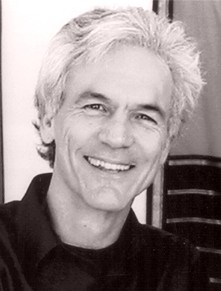A Quote by Gary Snyder
Why should the peculiarities of human consciousness be the narrow standard by which other creatures are judged?
Related Quotes
The human being is that space in which the comprehensive compassion that pervades the universe from the very beginning now begins to surface --within consciousness. (As compared with the natural displays of compassion by other creatures that is not necessarily 'within consciousness. ') That's the only difference. We didn't create compassion, but it's flowing through us-or it could. The phase change that we're in seems, to me, to depend upon that comprehensive compassion unfurling in the human species.
How very paltry and limited the normal human intellect is, and how little lucidity there is in the human consciousness, may be judged from the fact that, despite the ephemeral brevity of human life, the uncertainty of our existence and the countless enigmas which press upon us from all sides, everyone does not continually and ceaselessly philosophize, but that only the rarest of exceptions do.
I want to put it back together now, this artistic expression that contains religious feeling. I want to investigate: What was the origin? What's happened in the human mind? Can we trace back the moment of the creation of human consciousness? And why did only humans gain consciousness, not other animals? So, evolution? I don't know whether or not I can believe evolution. Maybe we wait for another 100,000 years and then apes get consciousness.
If it be admitted that a man, possessing absolute power, may misuse that power by wronging his adversaries, why should a majority not be liable to the same reproach? Men are not apt to change their character by agglomeration; nor does their patience in the presence of obstacles increase with the consciousness of their strength. And for these reasons I can never willingly invest any number of my fellow creatures with that unlimited authority which I should refuse to any one of them.
The Pope should not flatter himself about his power nor should he rashly glory in his honor and high estate, because the less he is judged by man, the more he is judged by God. Still the less can the Roman Pontiff glory because he can be judged by men, or rather, can be shown to be already judged, if for example he should wither away into heresy; because he who does not believe is already judged, In such a case it should be said of him: 'If salt should lose its savor, it is good for nothing but to be cast out and trampled under foot by men.'
Looking at the world from other species' points of view is a cure for the disease of human self-importance. You suddenly realize that consciousness - which we value and we consider the crowning achievement of nature, human consciousness - is really just another set of tools for getting along in the world.
This world, this universe which our senses feel, or our mind thinks, is but one atom, so to say, of the Infinite, projected on to the plane of consciousness; and within that narrow limit, defined by the network of consciousness, works our reason, and not beyond. Therefore, there must be some other instrument to take us beyond, and that instrument is called inspiration.
The stranger in ancient Israel did not serve as a judge, although he received all the benefits of living in the land. The political question is this: By what biblical standard is the pagan to be granted the right to bring political sanctions against God's people? We recognize that unbelievers are not to vote in Church elections. Why should they be allowed to vote in civil elections in a covenanted Christian nation? Which judicial standards will they impose? By what other standard than the Bible?
Human relationships with predators have always been thorny. Predators are the first creatures our kind purposely eradicates. Too often, people feel humans are and should be in control; we are enraged to discover this is not true. And when other creatures share our appetites and kill our livestock (often animals we were raising to kill, ourselves), we call them vandals and murderers...Predators are the most persecuted creatures on Earth.
Chomsky proceeds on the almost unthinkably subversive assumption that the United States should be judged by the same standards that it preaches (often at gunpoint) to other nations he is nearly the only person now writing who assumes a single standard of international morality not for rhetorical effect, but as a matter of habitual, practically instinctual conviction.







































